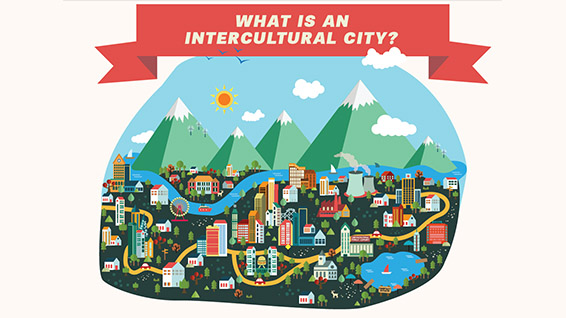About Intercultural Cities

Cities can gain enormously from the entrepreneurship, variety of skills and creativity associated with diversity, provided they adopt policies and practices that facilitate intercultural interaction and inclusion.
An Intercultural city is a place where:
- Real equality is actively sought by preventing discrimination and adapting the city’s governance, institutions and services to the needs of a diverse population.
- Political leaders and most citizens regard diversity positively, as a resource, and understand that all cultures change as they encounter each other in the public arena. They advocate for a pluralistic city identity built around a shared vision and common values.
- Meaningful interaction between diverse individuals and groups is is engineered through public policies that promote trust, create connections and transform the public space in a way that it multiplies occasions for encounters, exchange and dialogue.
- And active citizenship and participation is enabled to ensure that no-one is left aside, that even those who do not enjoy formal citizenship have a voice into shaping their local society. Equality, diversity, interaction, and active citizenship and participation are four inter-linked values that underpin the development and sustenance of an intercultural city.
The collective input of the programme has shaped a unique concept to migrant/minority integration and positive diversity management called Intercultural integration. The concept is supported by extensive research evidence and a range of international legal instruments.
Based on this, the programme proposes a set of analytical and practical tools to help local stakeholders through the various stages of the process.
| Brochure on the ICC programme >> | Facts and figures >> |








